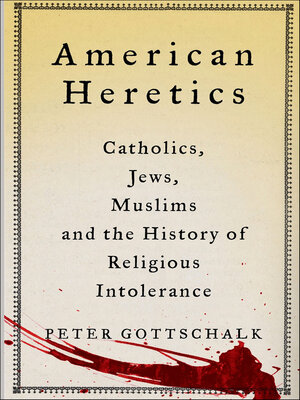American Heretics
ebook ∣ Catholics, Jews, Muslims and the History of Religious Intolerance
By Peter Gottschalk

Sign up to save your library
With an OverDrive account, you can save your favorite libraries for at-a-glance information about availability. Find out more about OverDrive accounts.
Find this title in Libby, the library reading app by OverDrive.



Search for a digital library with this title
Title found at these libraries:
| Loading... |
In the middle of the nineteenth century a group of political activists in New York City joined together to challenge a religious group they believed were hostile to the American values of liberty and freedom. Called the Know Nothings, they started riots during elections, tarred and feathered their political enemies, and barred men from employment based on their religion. The group that caused this uproar?: Irish and German Catholics—then known as the most villainous religious group in America, and widely believed to be loyal only to the Pope. It would take another hundred years before Catholics threw off these xenophobic accusations and joined the American mainstream. The idea that the United States is a stronghold of religious freedom is central to our identity as a nation—and utterly at odds with the historical record. In American Heretics, historian Peter Gottschalk traces the arc of American religious discrimination and shows that, far from the dominant protestant religions being kept in check by the separation between church and state, religious groups from Quakers to Judaism have been subjected to similar patterns of persecution. Today, many of these same religious groups that were once regarded as anti-thetical to American values are embraced as evidence of our strong religious heritage—giving hope to today's Muslims, Sikhs, and other religious groups now under fire.






